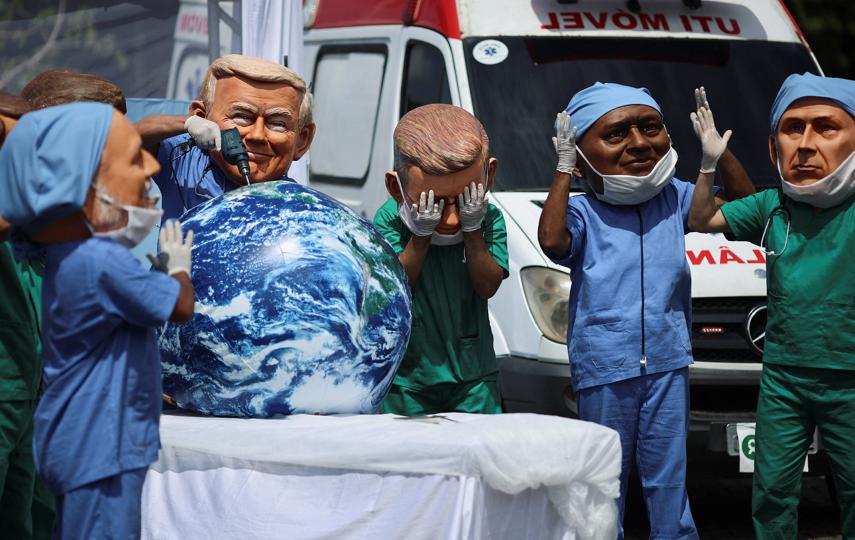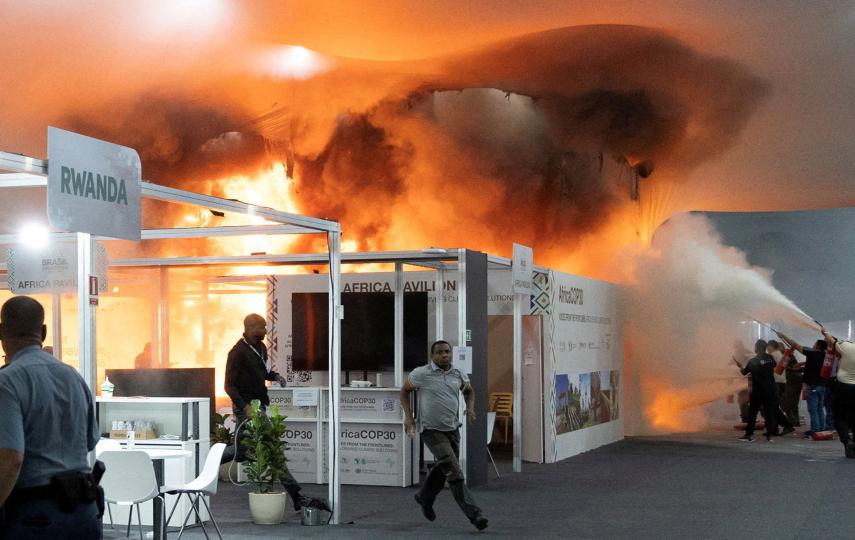Allegations by Angola's main opposition UNITA party that police tried to assassinate its leader last week are provoking concern about the political climate in the run-up to legislative elections in 2008.
Isaias Samakuva, who has been at the helm of the former rebel movement since 2003, was on a five-day visit to Kwanza Norte Province, east of the capital, Luanda, when police officers allegedly shot at the municipal party headquarters he was visiting.
UNITA officials said three of around 10 gunshots into the building came within a metre radius of the party leader, and four police officers had been arrested in connection with the incident. Samakuva said he believed the alleged attack was premeditated.
"My reading is that this was something prepared. I have no doubt about this. What I don't know is if it was prepared to damage or just to frighten," he said of the incident in the town of Camabatela.
"With the [political] culture in the country, being an opposition politician, this is something I expected to happen sometime," he added.
Carlos Mendonca, Kwanza Norte's police commander, acknowledged there had been an incident but said he was not aware of any attack on the UNITA leader.
"I don't know anything about an attempted assassination against the UNITA president," he commented. "There were some gunshots fired in the area by people who are unknown to the police, and I can't say exactly where the incident occurred. We are carrying out an investigation to establish the facts."
UNITA is set to face the ruling MPLA in legislative elections in 2008, with a presidential ballot to follow a year later. The last ballot was in 1992 but UNITA contested the result and the then rebels and government forces returned to war. The 27-year conflict finally ended in 2002.
According to Samakuva, there would not be a return to civil strife. In the last year, 13 UNITA members had been killed, and he was concerned about a recent increase in political intolerance.
"I am worried in this regard, because it happened in 1975 [after Angola's independence from Portugal]. The same thing happened in 1991 [in run-up to elections], it's the same pattern ... We won't return to war, but these kinds of things [incidents of political violence] are escalating," he said. "The sole difference will be: UNITA does not have rifles, no arms. There is no ill-will on UNITA's side; I can't imagine there is one leader of UNITA who will handle a gun."
A number of Angolans questioned at random by IRIN said even though UNITA's allegation had not been confirmed, it did not bode well for Angola as the country gears up for its first elections in well over a decade.
Analysts, too, expressed concern. "The political climate is rather closed right now. Angola is certainly not in danger of returning to war, but this climate is not what one might expect five years after the end of the war," said Nicholas Shaxson, an Africa expert at the Royal Institute of International Affairs in London.
"The [ruling] MPLA [party] is showing controlling tendencies - the recent arrests of [opposition party] PADEPA officials being another case in point. There is quite a deep reluctance to tolerate alternative opinions about how Angola should be ruled," he added.
The alleged incident came at a time when Angola, sub-Saharan Africa's second largest oil producer after Nigeria, is enjoying an unprecedented economic boom, but little of the wealth has trickled down to Angola's 16 million people, most of whom survive on less than US$2 a day. Shaxson said the country's oil riches also gave the ruling party room to ignore diverging opinions.
"Oil is one of the roots of this - the rulers get their money from the oil and diamond sectors, and many of them feel that there's no need to worry about the bleatings of their opponents, even when they complain about assassination attempts," he said. "Although UNITA does have quite a bit of political support in Angola, particularly in the countryside, the fact is that they are weak and divided, and are almost powerless in the face of the enormously wealthy MPLA."
The process of registering an estimated 7 million eligible voters has been underway since November 2006 and is will continue until June. Most political observers agree that the MPLA is likely to win comfortably at the ballot box, but they also say these are testing times for Angola.
"There was an increase in political tension at the start of the registration process but that seems to have calmed down now," said one, requesting anonymity. "But there are always flashpoints in elections, and there are still a lot of restrictions on political activities outside Luanda and the provincial capitals. There is a lack of understanding of UNITA's fundamental right to campaign and open up offices."
zi/oa/he
This article was produced by IRIN News while it was part of the United Nations Office for the Coordination of Humanitarian Affairs. Please send queries on copyright or liability to the UN. For more information: https://shop.un.org/rights-permissions




